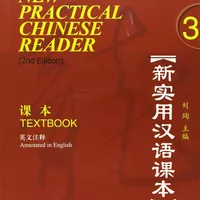Lesson 38 - Dialog 1
Lektion 38 - Dialog 1
Lesson 38 - Dialog 1
Leçon 38 - Dialogue 1
レッスン38 ダイアログ1
Lição 38 - Diálogo 1
Урок 38 - Диалог 1
Lesson 38 - Dialog 1
杰克 : 大为 , 小燕子 , 告诉 你们 一个 好消息 。
Jack||Xiao Yanzi||||
||||||good news
Jack: Dawei, Little Swallow, I have good news for you.
我 结婚 了 !
I'm married!
玉兰 嫁给 我 了 !
Yulan|married to||
Yulan married me|married to||
Yulan is married to me!
小燕子 : 等一等 , 你 结婚 了 ?
Little Swallow||||
Little Swallow: Wait a minute, you're married?
你们 是 什么 时候 结婚 的 ?
When did you get married?
我们 怎么 都 不 知道 ?
How come we don't know?
杰克 : 我 结婚 , 我 自己 知道 就行了 。
||||||c'est suffisant
Jack: I'm married, I just know it myself.
Estoy casado y lo sé.
再说 , 我们 去 旅行 结婚 , 一 回来 就 告诉 你们 。
Besides, we're going on a trip to get married, and we'll tell you when we get back.
Además, viajamos para casarnos y te lo diremos en cuanto volvamos.
D'ailleurs, nous partons en voyage pour nous marier et nous te le dirons dès notre retour.
不算 晚 吧 ?
not counting|late|
It's not too late, is it?
No es demasiado tarde, ¿verdad?
Il n'est pas trop tard, n'est-ce pas ?
小燕子 : 祝贺 你们 新婚 愉快 , 生活 幸福 。
|Félicitations||nouveau mariage|joyeuse||heureuse
|congratulate||newlyweds|||happy
Xiaoyanzi: Congratulations on your wedding and a happy life.
Golondrina: Enhorabuena por tu nuevo matrimonio y tu vida feliz.
Hirondelle : Félicitations pour votre nouveau mariage et votre vie heureuse.
杰克 : 谢谢 !
Jack: Thank you!
小燕子 : 你 只 让 我们 知道 还 不行 , 还 得 ……
Xiaoyanzi: You can't just let us know, you have to...
Pequeña Golondrina: No puedes avisarnos sin más, tienes que ......
Petite hirondelle : Vous ne pouvez pas vous contenter de nous informer, vous devez ......
杰克 : 对 , 我们 早就 去 政府 登记 了 , 也 拿到 结婚证 。
|||déjà|||enregistré||||certificat de mariage
|||||the government|registered||||marriage certificate
Jack: Yes, we have already registered with the government and got a marriage license.
Sí, nos registramos en el gobierno hace mucho tiempo y obtuvimos nuestro permiso de matrimonio.
小燕子 : 我 想 说 的 不是 这个 意思 。
Little Swallow: That's not what I meant to say.
Golondrina: Eso no es lo que quería decir.
Xiaoyanzi: Đó không phải là điều tôi muốn nói.
杰克 : 那 是 什么 意思 ?
Jack: What does that mean?
小燕子 : 我 是 说 , 你 还 得 请客 。
|||||||inviter les gens
|||||||treat
Xiaoyanzi: I mean, you have to treat yourself.
Pequeña Golondrina: Quiero decir, todavía tienes que tratarnos.
杰克 : 那 当然 , 这是 我们 的 喜糖 , 来 , 请吃 糖 。
||||||bonbon de mariage|||bonbon
||||||wedding candy||please eat|
Jack: Of course, this is our wedding candy. Come, please have some candy.
Por supuesto, son los caramelos de nuestra boda. Ten, toma unos caramelos.
小燕子 : 喜糖 我们 收下 了 , 但 这 还 不算 是 请客 。
|||acceptons|||||||
|wedding candies||accepted|||||||
Little Swallow: We accepted the candy, but it's not a treat.
Golondrina: Hemos aceptado los caramelos de boda, pero esto aún no es una golosina.
马 大为 : 杰克 , 按 中国 人 的 习惯 结婚 要 要 举行 婚礼 。
|||selon||||||||tenir|wedding
|||||||||||hold|
Ma Dawei: Jack, according to the Chinese custom, a wedding should be held.
Jack, es una costumbre china tener una ceremonia para casarse.
墙上 、 门上 , 要 贴 红双喜字 。
sur le mur|||coller|caractères de bonheur
||||red double happiness
The words "Double Happiness" should be posted on the walls and doors.
新娘 要 做 花轿 , 还要 摆 宴席 , 请 很多 客人 来 。
la mariée|||palanquin||préparer|banquet||||
bride|||bridal sedan chair|||banquet||||
The bride is going to make a sedan chair, and she will also hold a banquet, inviting many guests to come.
La novia tiene que hacer un palanquín, y tiene que celebrar un banquete e invitar a muchos invitados.
婚礼 人 闹得很 。
wedding||très bruyants
||very noisy
Weddings People make a lot of noise.
La gente de las bodas hace mucho ruido.
杰克 : 要 举行 婚礼 , 我 明白 。
||tenir|wedding||
Jack: There's a wedding, I understand.
Tener una boda, lo entiendo.
我们 西方人 一般 实在 教堂 举行 婚礼 。
|les occidentaux||vraiment|church||wedding
|Western people|||church||wedding
We Westerners generally hold weddings in churches.
Los occidentales solemos celebrar nuestras bodas en iglesias.
Nous, Occidentaux, célébrons généralement nos mariages dans des églises.
说 到 宴席 , 我们 只 请 亲戚朋友 , 在 一起 喝 杯酒 , 唱 唱歌 , 跳跳舞 , 高兴 高兴 。
||banquet||seulement||famille et amis||||a drink|||||
||||||relatives and friends||||a cup of wine|||dance a bit||
When it comes to banquets, we only invite relatives and friends to have a glass of wine, sing, dance, and be happy.
Cuando se trata de banquetes, sólo invitamos a nuestros parientes y amigos a tomar una copa, cantar, bailar y ser felices.
除了 特别 有钱 的 人 以外 , 一般 都 不办 宴席 。
|||||||||banquet
||||||||hold banquets|
Except for the very rich, there are generally no banquets.
小燕子 : 我 表姐 的 家 在 农村 , 结婚 宴席 可不 只是 喝 杯酒 。
||cousin||||la campagne|||ne se limite pas|||a glass of wine
||cousin sister|||||||not just|||
Xiaoyanzi: My cousin's home is in the countryside, so a wedding banquet is not just a glass of wine.
Xiaoyanzi: La casa de mi prima está en el campo, y en su banquete de boda no sólo se bebe vino.
Xiaoyanzi: Nhà của anh họ tôi ở nông thôn, vì vậy tiệc cưới không chỉ có một ly rượu.
杰克 : 还有 什么 ?
Jack: What else?
小燕子 : 你 等 着 你 岳父 、 岳母 教 你 吧 。
|||||beau-père||enseigne||
|||||father-in-law|mother-in-law|teach you||
Xiaoyanzi: You wait for your father-in-law and mother-in-law to teach you.
Golondrina: Espera a que tu suegro y tu suegra te enseñen.

